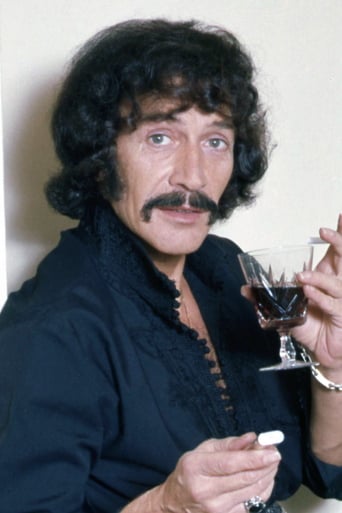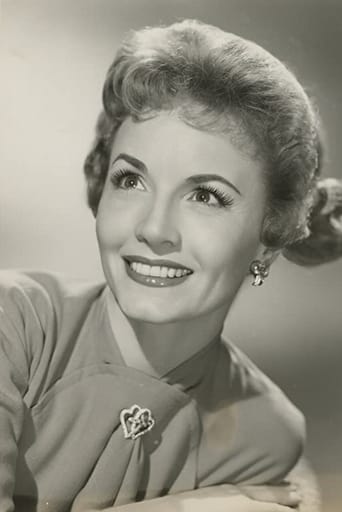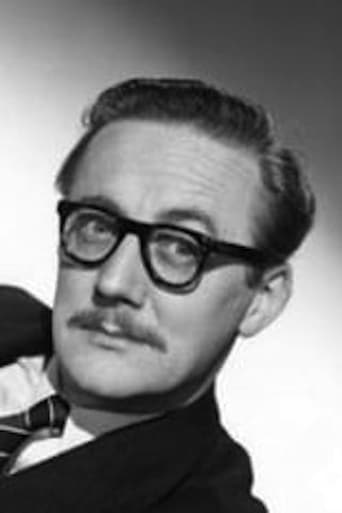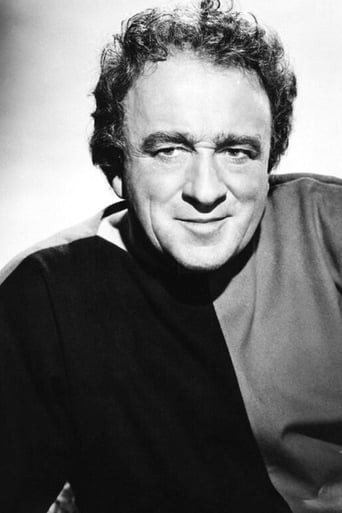Dynamixor
The performances transcend the film's tropes, grounding it in characters that feel more complete than this subgenre often produces.
Arianna Moses
Let me be very fair here, this is not the best movie in my opinion. But, this movie is fun, it has purpose and is very enjoyable to watch.
Mathilde the Guild
Although I seem to have had higher expectations than I thought, the movie is super entertaining.
Billy Ollie
Through painfully honest and emotional moments, the movie becomes irresistibly relatable
gsygsy
A demonstration that a lot can be achieved on a small budget by imaginative filmmakers. The intensity of this movie took me by surprise. I had expected something more plodding, along the lines of Hammer fare from the same period. Instead, here we have inventive camera-work (DOP Reg Wyer, cameraman future DOP Gerry Turpin), a hardworking score by William Alwyn, and a thoughtful leading man in Peter Wyngarde. Director Sidney Hayers had come from TV, where he seems mostly stayed thereafter - a pity, as he clearly rose to the challenge of this material.Best of all are the two excellent performances by Janet Blair and Margaret Johnston. The former, an American who had to come to England to get a part that demonstrated she could really act. The latter, a distinguished stage actress who pulled all the stops out for this rare leading screen role.The pace of the film slackens here and there, but recovers in time for a splendid finale. A couple of scenes would have benefited from retakes because of technical glitches, but I suspect there just wasn't enough money left to do them. It's certainly no worse in this respect, though, than NIGHT OF THE DEMON, which is a clear influence. The Jacques Tourneur movie is more satisfying because of the tautness of its screenplay, but in every other way NIGHT OF THE EAGLE (aka BURN, WITCH, BURN) is as good. I wish it were better known. It certainly deserves to be.
Spikeopath
Night of the Eagle (AKA: Burn, Witch, Burn!) is directed by Sidney Hayers and adapted to screenplay by Charles Beaumont, Richard Matheson and George Baxt from the novel "Conjure Wife" written by Fritz Leiber. It stars Peter Wyngarde, Janet Blair, Margaret Johnston, Anthony Nicholls and Colin Gordon. Music is by William Alwyn and cinematography by Reginald Wyer.Psychologist Norman Taylor (Wyngarde) is rocked when he discovers that his wife Tansy has been dabbling in witchcraft. She is adamant that it keeps them from harm and is the reason why his career is flourishing. Not convinced at all, Norman sets about destroying all of Tansy's paraphernalia and soon finds his life taking a drastic downturn…What is neurosis? A nerve-change, the physical basis of consciousness as distinguished from psychosis.This, the second of three adaptations of the Leiber novel to get the big screen treatment, is easily the best, a smouldering suspenser ripe with paranoia and atmospheric unease. Subtle in pacing, it's a marked lesson in gaining the most out of suggestion and understated story telling. Clearly not armed with a gargantuan budget, Hayers and his team rely on the strength of writing and acting to let this Eagle soar, and soar it does.Rites and Practice in Black Magic.The back drop is a place of academic studies, where the faculty indulge in get togethers, of drinks, snacks and card games, but this is all a false veneer. Lurking underneath is a veritable hot-bed of spitefulness, jealousies and bitter rivalries that come to the fore once the black magic forces of evil gather to destroy the Taylors.I do (not) believe.It builds with ambiguity lurking overhead, ensuring the belief system of Norman Taylor and the audience is constantly tested, and then the coiled spring is unleashed. The effects work may not be up to much, but it matters not, the impact is considerably suspenseful, even frightening. No gore or histrionics here, just damn great supernatural film making. 8.5/10
bobvend
Originally titled "Night Of The Eagle", this is a very effective chiller with fine acting throughout. Linda..err..Janet Blair plays a housewife with a hobby that proves too strange for her professor husband (Peter Wyngarde) to turn a blind eye to. When hubby makes his wife give up her spooky pastime, things start to hit the fan in short order. There are some nice touches here that foreshadow later horror masterpieces, "Rosemary's Baby" in particular. Faculty life at the quaint northern England college is rife with not-so-petty jealousies and a back-stabbing or two. The main um...(pot)stirrer on the staff, wonderfully played by Margaret Johnston, makes it known early on that she's a witch with a capital "B".A very attractive and more-than-capable cast, a good atmospheric production that does itself proud in black & white; and just when the suspense begins to sag a bit, a very good surprise twist. It's all here, and well worth your time.
Edgar Soberon Torchia
I saw "Night of the Eagle" last night, after watching it in 1962, and I was surprised again. No wonder I had not forgotten it after all these years. I could not remember details, but as I watched it (and judging it from 1962 standards) I realized how good it is: first it has quite a frightening tale to tell, frenetic rhythm, and more than a few remarkable dramatic scenes. All fits in its place, even Janet Blair's melodramatic performance (in contrast, for example, with Nancy Kelly's overacting in "The Bad Seed", that seriously affects the film, which seems dated today). By today's standards what may be the worst part of "Night of the Eagle" is the special effects, but on the positive side you have tension built from almost nothing (as in the scene Blair searches for a little doll after a bridge session), effective editing, a good score, fine performances, a sexual undercurrent all through the movie that today would be explicit, and raw sensuality from leading actor Peter Wyngarde, who had previously been cast as the servant who supposedly had involved children Flora and Miles in sexual activity in "The Innocents". There's even a homo-erotic feeling in the way his body is displayed (I have no idea if director Sidney Hayers or Wyngarde were homosexuals, or if they did it on purpose; this is just an impression I had, but it seemed logic to me since the man is accused of raping a student, and all women in the university should envy Blair, with those senior husbands of theirs.) Sometimes things seem illogic, like Wyngarde entering a cemetery, but as he has read in his wife's notes, that is a perfect place to perform a rite, what in fact he is going to do. I do not know how the novel ends, but the happy ending the film has, is a bit of a turn down... or maybe it's just a thought of our times, when pessimism is more common compared to the high hopes of the early 1960s. A very good film, which I recommend, always keeping it in its own space and time perspective.






